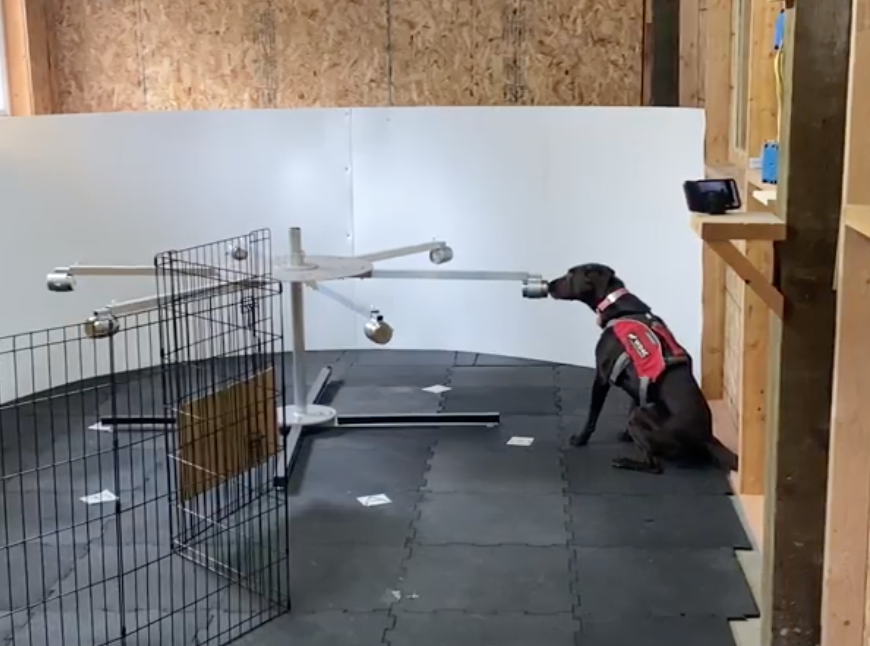The World Sturgeon Conservation Society (WSCS) and Working Dogs for Conservation (WD4C) have teamed up to address the trade of illegal caviar. WD4C trains conservation dogs to protect wildlife and wild places (https://wd4c.org/), while the focus of the WSCS is conservation and restoration of sturgeon and paddlefish populations and sustainable aquaculture.
Harvest, production, and sale of caviar from threatened or endangered sturgeons or paddlefish is illegal and a threat to the conservation and restoration of these species throughout the Northern Hemisphere, yet some wild species are still illegally caught and trafficked as farmed caviar. Being able to tell the difference between farmed and wild caviar will help authorities stop illegal mislabeled shipments from endangered wild species. That’s where the dogs come in.
Most people know that dogs’ noses are incredibly sensitive, which is what makes them so good at detection. They also have extraordinary abilities when it comes to discrimination or smelling the differences between two different odors. WSCS and WD4C are working to test dogs’ ability to discriminate wild from farmed caviar, even when sealed in tins (as they are for shipping).
The first step in the collaborative effort between these organizations has been to train dogs to successfully detect caviar sealed in tins. Here’s a video of Finn, one of WD4C’s wildlife law enforcement dogs. (Finn doesn’t know it, but the 2ndcan has caviar sealed in the tin—the others are “blanks” (with no target odor) or “distractors” with non-target scents like hair gel or other things the dogs can smell but are not targets they are trained to detect, so they know to ignore).
As you can see, Finn can detect caviar sealed in a tin. The next step in the collaborative effort is to determine if the working dogs can differentiate between wild and farmed caviar. If successful, Finn, Benny, and other wildlife law enforcement dogs could help customs, agricultural, and wildlife officers around the world to identify illegally harvested wild caviar. We’ll keep you up to date on their progress.
We would like to thank Sterling Caviar (https://www.sterlingcaviar.com/) for their donation of caviar for training.





